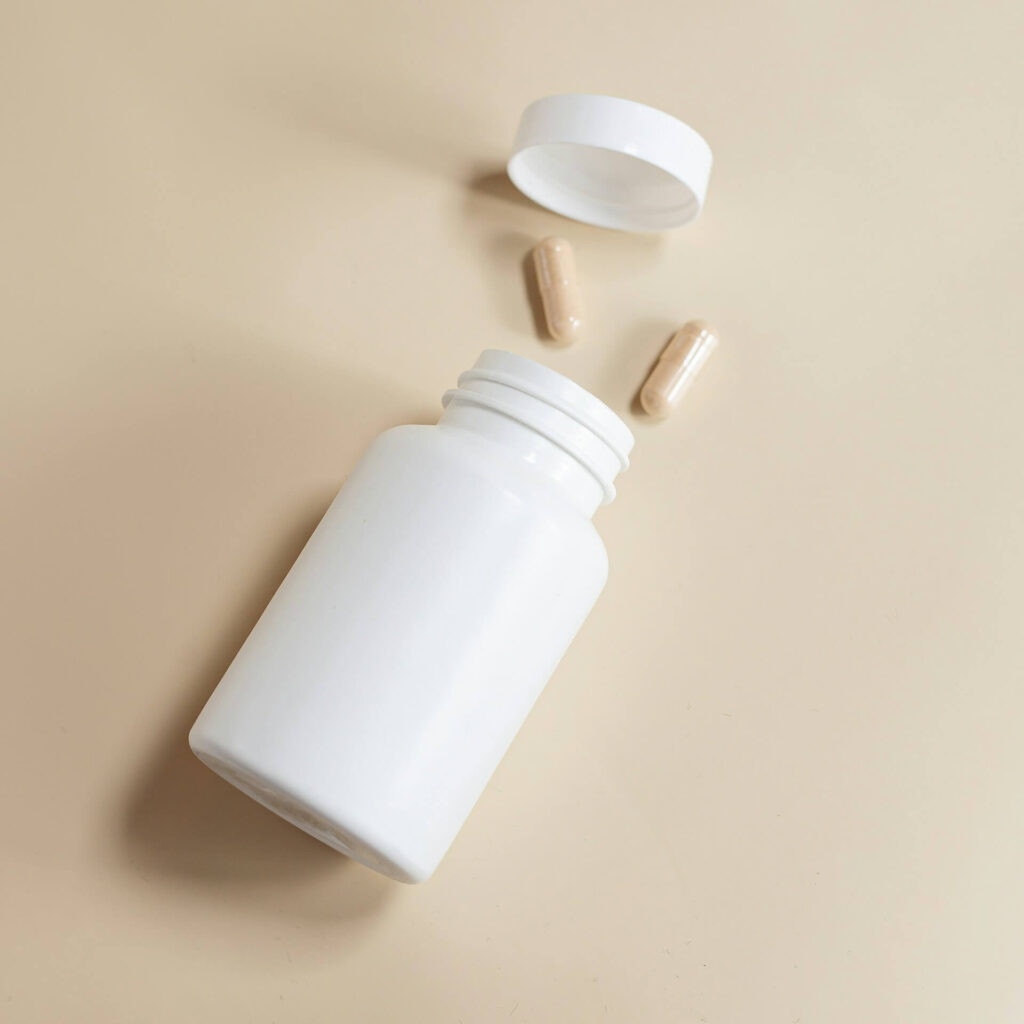As we head into cold and flu season, many are on the hunt for ways to enhance immunity. If we learned anything from the pandemic, it’s how crucial it is to keep the immune system healthy.
While you can’t avoid germs altogether, there’s still plenty you can do to keep your immune system strong.
Many simple lifestyle habits and holistic treatments can help give your immune system an edge. Keep reading for 10 top ways to boost your immune system naturally.
Natural Ways to Strengthen Your Immune System
1 – Eat for immunity

Your food choices can either help or harm your immune system. Alcohol and sugary foods create inflammation and cause drastic blood sugar spikes, which can weaken immunity. So it’s best to limit or avoid them.
Instead, focus on eating wholesome foods like fruits, veggies, whole grains, legumes, nuts, and seeds. This will flood your body with vitamins and nutrients to keep your immune system strong.
Certain foods have especially potent immune-boosting powers. Be sure to add some of these immune booster foods to the menu:
- Foods high in vitamin C: citrus fruits, strawberries, tomatoes, broccoli, bell peppers, and kiwi
- Foods high in zinc: oysters, beef, chicken, pork, pumpkin seeds, oats, and lentils
- Probiotic-rich fermented foods: yogurt, kefir, sauerkraut, kimchi, miso, and kombucha
- Antioxidant-rich foods: berries, dark leafy greens, beans, pecans, green tea, and dark chocolate
- Anti-inflammatory spices: garlic, ginger, and turmeric
For more foods that may step up your immune health, check out this article.
2 – Practice good hygiene

You knew the ‘wash your hands’ tip was coming right? But there’s a reason you hear it on repeat.
COVID-19 can live on your skin for 9 hours. And the flu virus can survive on hard surfaces for up to 48 hours. Washing your hands often prevents these germs from spreading. That way, you’re less likely to come down with bugs in the first place.
To send these germs packing, wash your hands frequently with soap and water for at least 20 seconds. And try to avoid touching your face, especially your nose, eyes, and mouth.
3 – Get plenty of Zzz’s

Sleep and immune health go hand in hand. When you don’t get enough sleep, it increases the release of inflammatory cytokines. As if that wasn’t enough, lack of sleep also decreases immune cell activity and infection-fighting antibodies.
One study found that people who skimp on sleep were twice as likely to catch a cold compared to those who got at least 7 hours of sleep. To keep your immune system in tip-top shape, aim for 7-9 hours of shut-eye each night.
4 – Stay hydrated
Your lymphatic system is part of your immune system. And staying well-hydrated is a must to keep your lymphatic system healthy. Water helps lymph circulate throughout your body. This fluid contains white blood cells that fight off infection. The more water you drink, the easier lymph can move.

Plus, water helps your kidneys flush out toxins and waste from your blood. Removing these toxins allows your immune system to focus its energy on battling pathogens. Water needs vary–but aiming for at least 2 liters each day is a good rule of thumb.
5 – Exercise regularly

Moving your body helps the immune cells in your blood and lymph circulate. This helps immune cells fight off viruses, bacteria, and other harmful pathogens. Physical movement also lowers inflammation in the body, which improves immunity.
Just try not to overdo it. Intense exercise for prolonged periods can actually weaken immunity. Shoot for 20-30 minutes of moderate exercise most days. Swim, bike, walk, lift weights, play pickleball, or have an impromptu dance party. Anything that gets your body moving!
6 – Keep a lid on stress

Stress increases the hormone cortisol. In short spurts, cortisol can improve immunity by lowering inflammation. But when stress becomes chronic, it’s another story. When cortisol stays high for too long, it creates inflammation and weakens immunity. Stress also reduces white blood cells like T cells that fight off infections.
That’s why reducing stress is one of the best things you can do to improve your immunity. Take time for activities that help you relax whether that’s yoga, meditation, breathwork, or spending time in nature. Social connection, doing things you enjoy, and laughter can also help you destress.
7 – Soak up some sun

Daily sun exposure gives you a free dose of vitamin D, a nutrient that enhances immune function. Yet roughly 42% of US adults are running low on vitamin D.
Getting 5 to 30 minutes of daily sunlight can keep your vitamin D levels in a healthy range to support immunity.
Sunshine also syncs up your circadian rhythm, which helps you sleep better. And as mentioned, sleep has a powerful effect on immune function.
8 – Keep supplements on hand

There’s no substitute for a healthy diet and lifestyle for immune health. That said, we all get sick at times, no matter how many plates of broccoli you eat.
Having immune-boosting supplements handy gives your immune system extra support–right when you need it most.
Here are some supplements to consider adding to your immunity toolkit:
- Elderberry: Elderberries are anti-inflammatory, rich in antioxidants, and have antiviral properties. One study showed that taking elderberry extract shortened flu symptoms by 3-4 days.
- Andographis: This herb is anti-inflammatory and antibacterial. It’s shown to reduce the severity and duration of colds, flu, and other respiratory viruses.
- Probiotics: Roughly 70% of your immune system lives in your gut. Probiotic supplements help replenish your friendly gut bacteria to keep bad bacteria in check.
- Olive leaf extract: This herb comes from the leaves of the olive tree and has antiviral and antimicrobial properties. At Anchored in Health, we often tell patients to start taking olive leaf supplements right when cold symptoms pop up.
9 – Get chiropractic care

If you want to boost your immune system, consider visiting a chiropractor. Chiropractors do treatments like spinal manipulation to get the spine properly aligned. This helps balance your nervous system and allows nerve signals to travel more freely down your spinal cord.
Since the nervous system helps regulate the immune system, chiropractic care may level up your immunity too.
10 – Try acupuncture

Acupuncture can have far-reaching effects on your health. It relieves stress, decreases inflammation, and improves sleep quality – which can all impact immunity. Research suggests acupuncture helps regulate immune cells and may even have anti-cancer effects on the body.
Boost Your Immune System with Chiropractic Care & Acupuncture From A Holistic Doctor in Orland Park, IL
Live in the Chicago area and want to upgrade your immune health this cold and flu season? Anchored in Health is here to help.
We offer chiropractic and acupuncture treatments to help support a healthy immune response. So if you’re ready to enhance your body’s immune health, follow these steps:
- Contact us with questions.
- Schedule your first chiropractic or acupuncture appointment here.
- Experience how these holistic treatments can help keep your immune system in peak condition.
Other Holistic Health Services Offered at Anchored in Health in Orland Park, IL
At Anchored in Health, we offer Chicagoans a variety of wellness services to help you feel your best. This includes functional medicine, massage therapy, the Shape ReClaimed program, genetic testing, and thermography. Contact us to learn how we can help you keep your immune system strong throughout cold and flu season and all year long!
Disclaimer: The information provided on this blog is for educational and informational purposes only and is not intended to diagnose, treat, cure, or prevent any disease. The content is not a substitute for professional medical advice, diagnosis, or treatment. Always seek the guidance of a qualified healthcare provider with any questions you may have regarding your health or a medical condition.
Reading this blog does not establish a doctor-patient relationship between you and Anchored In Health or any of its practitioners. Reliance on any information provided in this blog is solely at your own risk. For medical concerns, always consult a licensed healthcare provider.
Sources:
- https://my.clevelandclinic.org/health/articles/24495-germs
- https://www.verywellhealth.com/covid-stays-on-skin-longer-than-flu-5084585
- https://www.ncbi.nlm.nih.gov/pmc/articles/PMC3548567/
- https://academic.oup.com/sleep/article/38/9/1353/2417971
- https://pubmed.ncbi.nlm.nih.gov/32139352/
- https://www.ncbi.nlm.nih.gov/pmc/articles/PMC4465119
- https://pubmed.ncbi.nlm.nih.gov/24798553/
- https://www.ncbi.nlm.nih.gov/pmc/articles/PMC6075634/
- https://www.ncbi.nlm.nih.gov/pmc/articles/PMC8299926
- https://ods.od.nih.gov/factsheets/ImmuneFunction-HealthProfessional/
- https://pubmed.ncbi.nlm.nih.gov/11399518/
- https://www.ncbi.nlm.nih.gov/pmc/articles/PMC8023121/
- https://www.ncbi.nlm.nih.gov/pmc/articles/PMC4056170/
- https://www.ncbi.nlm.nih.gov/pmc/articles/PMC4540978/
